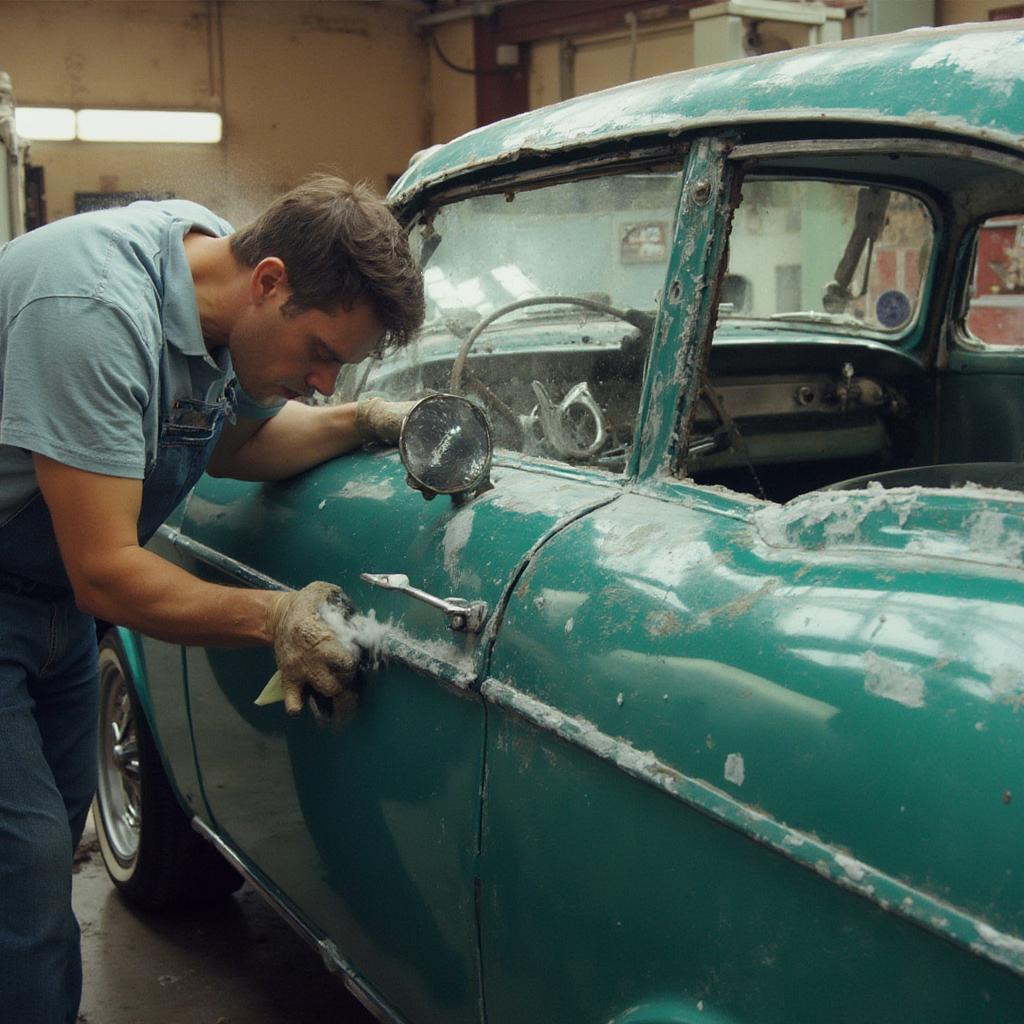Your cart is currently empty!

Tips to Liquidate Classic Cars
Selling a classic car can be more involved than selling a regular vehicle. It’s not just about getting a good price; it’s about finding the right buyer who appreciates the history and value of your classic. Whether you’re looking for Tips To Liquidate Classic Cars quickly due to financial constraints or simply seeking a change in your collection, this guide will offer valuable insights into the process. We’ll cover everything from preparing your car for sale to navigating the complexities of auctions and online marketplaces.
Understanding the Classic Car Market
Before you begin the process of liquidating your classic car, it’s crucial to understand the market dynamics. Prices fluctuate based on factors like rarity, condition, and current trends. Researching similar models recently sold can provide a realistic price range. Knowing the market also helps you identify the best platforms for selling your specific car. Are you selling a highly sought-after vintage sports car or a more common classic muscle car? Each requires a tailored approach. Understanding the target audience for your vehicle is a key factor in successful liquidation.
Preparing Your Classic Car for Sale
Presentation is paramount when selling a classic car. A thorough detailing, both inside and out, can significantly enhance its appeal. Consider addressing any minor mechanical issues and gathering all relevant documentation, including service records and ownership history. This not only increases the value but also builds trust with potential buyers. Remember, a well-maintained classic car tells a story, and meticulous preparation showcases its legacy.
 Classic Car Detailing for Optimal Sale Value
Classic Car Detailing for Optimal Sale Value
Choosing the Right Sales Channel
Several avenues exist for liquidating classic cars, each with its pros and cons. Online marketplaces offer broad reach and convenience. Auctions can create a competitive bidding environment, potentially driving up the price. Consignment through a reputable dealer offers a hands-off approach but comes with commission fees. Direct sales to private buyers might yield the highest profit but require more effort in terms of advertising and negotiation. Carefully evaluate each option based on your circumstances and the specific classic car you’re selling.
Pricing Your Classic Car Strategically
Accurately pricing your classic car is essential for a successful sale. Overpricing can deter potential buyers, while underpricing leaves money on the table. Utilizing online valuation tools, consulting with classic car appraisers, and researching comparable sales can help determine a fair market value. Be prepared to negotiate, but know your bottom line. Consider factors such as mileage, originality, and any unique features that add value.
Negotiating and Closing the Deal
Once you find a potential buyer, be prepared to negotiate the price and terms of the sale. Having all the necessary paperwork readily available streamlines the process. Ensure a smooth transaction by clearly outlining payment methods and transfer of ownership procedures. A well-structured sales contract protects both parties and ensures a legally sound transaction. Don’t rush the process; take the time to answer all the buyer’s questions and address any concerns.
Tips for a Smooth Transaction
- Documentation is key: Maintain organized records of all maintenance, repairs, and ownership history.
- Be transparent: Disclose any known issues or imperfections with the car.
- Professional photography: High-quality images showcase the car’s best features and attract more attention.
- Target the right audience: Utilize platforms and publications that cater to classic car enthusiasts.
- Patience is a virtue: Selling a classic car can take time, so avoid rushing the process.
Conclusion
Liquidating classic cars requires a strategic approach that combines market knowledge, meticulous preparation, and effective negotiation skills. By following the tips outlined in this guide, you can increase your chances of securing a fair price for your cherished vehicle and ensuring a smooth transaction. Remember to research the market thoroughly, present your car in its best light, and choose the sales channel that best suits your needs. Successfully liquidating a classic car is about more than just the money; it’s about finding the right custodian to continue its legacy.
FAQ
- What is the best time of year to sell a classic car? Spring and summer typically see higher demand.
- Do I need a special appraisal for a classic car? Yes, a classic car appraisal ensures accurate valuation.
- How can I protect myself from scams when selling online? Verify the buyer’s identity and use secure payment methods.
- Should I disclose any previous restoration work? Transparency builds trust and avoids potential issues later.
- What are the tax implications of selling a classic car? Consult with a tax professional for specific guidance.
- How do I determine the fair market value of my classic car? Research similar sales and consider professional appraisal.
- Is it better to sell privately or through a dealer? Each option has its pros and cons; choose what suits your needs.
Situations and Questions
Scenario: You inherited a classic car but don’t know anything about its history. Question: How can I research the history of my inherited classic car to determine its value and authenticity?
Scenario: You’re considering selling your classic car but are unsure whether to auction it or sell it privately. Question: What are the advantages and disadvantages of auctioning versus selling a classic car privately?
Further Resources
Explore other articles on our website about classic car maintenance, restoration, and valuation.
Contact Us
For assistance with liquidating your classic car, contact us via WhatsApp: +1(641)206-8880, Email: [email protected], or visit us at 456 Pine Avenue, Toronto, ON M5V 2J4, Canada. Our customer service team is available 24/7.

Leave a Reply